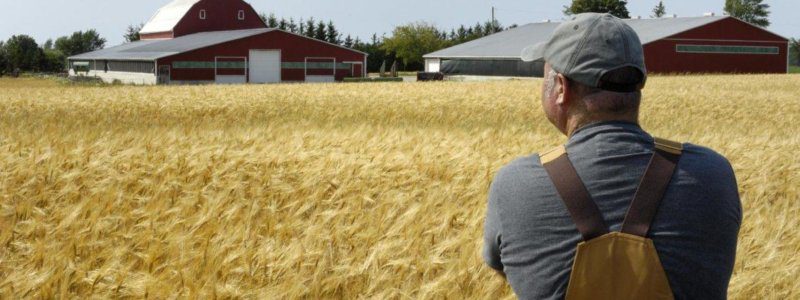
AgroFoodCluster Kharkiv, uniting small and medium-sized agricultural producers in Kharkiv region, plans to develop a direct export scheme for small farmers in 2019, Cluster Chairman Yuriy Mykhailov has said. “Next year we want to build an export scheme for our farmers, according to which they will be able to receive currency into their account. This is the main motive for the region, so that the currency comes to the manufacturer, and does not remain partially abroad, which most traders abuse,” Mykhailov told Interfax-Ukraine at the third Ukrainian-German forum “BEA: Bioenergy, Energy Efficiency and Agribusiness” in Kharkiv.
According to him, the cluster in 2019 also intends to increase the number of participants.
Among the projects of AgroFoodCluster in 2017-2018 is the participation in the ANUGA food fair (Cologne, Germany). According to Honorary Consul of the Federal Republic of Germany in Kharkiv and managing partner of ILF Tetiana Havrysh, this allowed the cluster members to get new contracts in the European, Asian and African markets.
Mykhailov said that the cluster also carries out joint projects with the ILF law firm, aimed at raising the legal awareness of cluster members on taxes and protecting businesses from illegal seizures.
“The last initiative that we have to implement is to become representatives of the Ukrainian Agricultural Council, which actively protects the interests of producers, and cooperate with them on the protection of the property of our participants,” Mykhailov said.
According to him, in October 2018, the cluster included 19 companies.
“If there are about 400-500 agricultural producers in Kharkiv, the share of cluster members is very small. We had a goal to reach 100 participants, but this is quite difficult,” he said.
According to Havrysh, the priorities of the cluster are also cooperation with educational institutions, which are part of the cluster, to improve the quality of staff, as well as the development of communities.
“Now the cluster is looking for strategies for introducing green tourism. It is launching cultural programs. This is an evolution, although it may not be fast, because the Ukrainian government does not have a specific strategy regarding clusters,” she said.
Havrysh said that the cluster is also interested in creating a branded regional product to increase competitiveness in the domestic market.
“This can seriously influence domestic exports between regions in Ukraine. We often see products from Western Ukraine in Kharkiv, but it is unlikely that products from Kharkiv are seen in Western Ukraine,” she said.
As reported, the AgroFoodCluster Kharkiv was created in July 2017 intending to bring the region’s products to new markets.